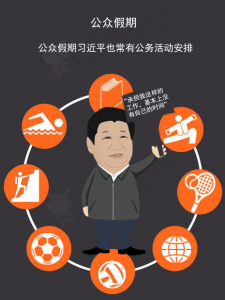A recent op-ed in South China Morning Post called Dongguan a city “in search of a reason to exist.” The article cited the slowing growth in economic output and the struggling tourist industry.
A feature in yesterday’s Nanfang Daily covered a much more important concern than mere self-image - severe poverty.
Wealth disparity
The rural parts of Dongguan have long been the richest in the province, with per capita income in rural areas at 24,898 yuan, an increase of 9% on the previous year. The city also leads the province in per capita disposable income.
However, inequality remains a huge problem in spite of initiatives such as that to give subsidies to those living below the poverty line. There are some 500 villages and communities in Dongguan, and the 10 poorest have only 1% of the wealth of the 10 richest.
The average per capita annual income is as low as 6,120 yuan, with disposable income at just 15% of that of the average urban resident.
Dongguan party secretary Xu Jianhua said that since 2010, the city has been initiating programs to make sure that the poor are not left behind as Dongguan develops.
However, some areas have not developed significantly during the reform and opening up period and some have even regressed.
Xinwan, a once-thriving fishing village
Xinwan Community on the southern end of Humen was once a thriving fishing village. Now it is just another impoverished part of the countryside.
Xinwan’s party secretary Deng Jianxin said last year, per capita income in the community was less than 7,000 yuan, with net income at less than 1000 yuan.
Rice being cooked on a wood fire in Xinwan, image courtesy of Nanfang Daily
A Lian, 41, has lived in Xinwan all his life. He lives in one of the many 30 square metre homes that was built during the 1960s and 70s in the former fishing village. He has one daughter in primary school and another at university. The family can barely afford the 10,000 yuan a year it costs to put the older daughter through her studies.
A Lian’s monthly income from his electrical repair shop is usually around 1750 yuan. His wife earns 1000 yuan a month at a factory. They are among the lucky families who make just enough to scrape by.
The poverty that exists in rich Dongguan
This year, Dongguan’s minimum wage increased 14% from 1,100 yuan, which in theory means Dongguan should not contain the extremes of poverty found in the nation’s hinterlands.
Try telling that to A Tang who lives in Zhongtang Village with his family of four. Because of a stomach operation he had several years ago, A Tang is unable to do physically demanding work, so to make use of himself he had to act as housewife before going off to help his sister in the local poultry market.
Then he recently landed a job as a security guard which earns him about 1000 yuan a month for 15 days work, and his wife earns 1,000 yuan a month at a local factory.
Together, their income brings them up to the city’s minimum wage, so according to official statistics, they can’t be doing that badly, even though their 70 square metre home is falling apart.
Questions raised over poverty alleviation projects
As a lawsuit that was filed in Guangzhou in June shows, corruption is still a huge obstacle in combating poverty in Dongguan.
Shortly after his tour of Guangdong last December, Xi Jinping said local officials should always bear in mind poverty-stricken groups and work for them with their whole heart and soul.
However, the embezzlement of poverty alleviation funds remains a problem in spite of the president calling it an “intolerable crime.”
A reason to exist
Dongguan needs to find a reason to exist, because poverty alleviation projects cannot be funded or effectively implemented if revenue generators like tourism and manufacturing don’t do well.











